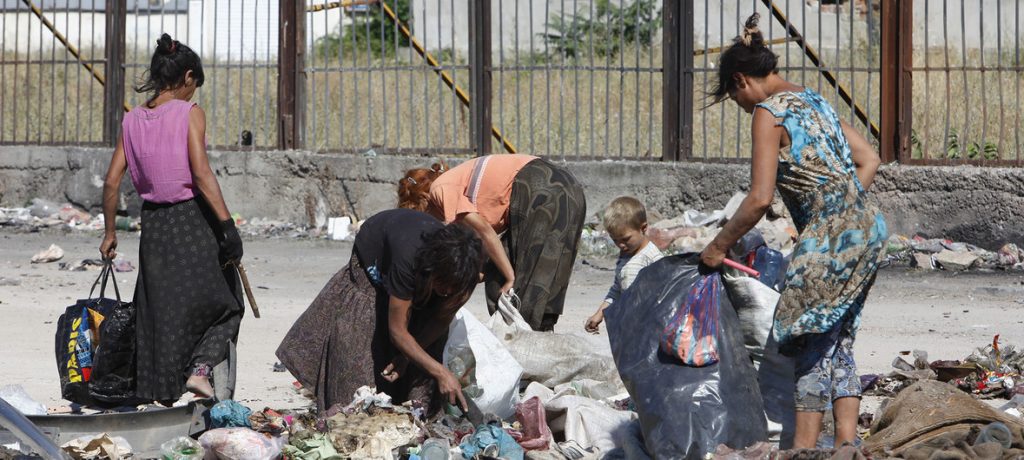
Roma children and adults are working on the waste disposal site in Nadezhda neighborhood, in Bulgaria. These families lack job opportunities, a major theme of the ILO Trends in Global Employment Report, 2019.
Unemployment is down globally but workers’ conditions have not improved, the UN said on Wednesday, warning that some businesses driven by new technology “threaten to undermine” hard-won social gains of recent decades.
According to the International Labour Organization (ILO), most of the 3.3 billion people employed worldwide in 2018 did not enjoy adequate levels of economic security, and lacked sufficient material well-being as well as too few opportunities for advancement.
In total, 172 million people were jobless last year – one in 20 individuals of working age – ILO’s Trends in Global Employment 2019 report shows.
This unemployment rate, which has only just returned to levels last seen before the 2008-9 financial crisis, is not expected to change this year or next, assuming stable global economic conditions; although current uncertainty is “already having a negative effect on the labour market” in upper middle-income countries, it says.
Nonetheless, “being in employment does not always guarantee a decent living,” said Damian Grimshaw, ILO Director of Research. “A full 700 million people are living in extreme or moderate poverty despite having employment.”
Fewer working-poor…in middle-income countries
On a positive note, the ILO report highlights that working poverty has decreased in middle-income countries over the past three decades, although poorer nations are likely to see a rise in the number of working poor.
This is because the pace of poverty reduction is not expected to keep up with employment growth in these emerging economies, despite China’s major contribution in reducing the working poor levels as a result of strong economic growth since 1993.
The ILO data also shows that 360 million people in 2018 worked in a family business and 1.1 billion worked for themselves – often in subsistence activities because of an absence of job opportunities in the formal sector and/or the lack of a social protection system.
Workers ‘unable to find more work or too discouraged to look’
Linked to the challenge of bringing down unemployment, the UN report identifies a lack of opportunity for those who want to work.
This includes those who would like to make the jump from part-time to full-time work and the long-term jobless, who become so discouraged that they stop looking.
Taken together, poor workplace conditions, unemployment and gender inequality have contributed to slower-than-anticipated progress in achieving the key development goal of sustainable work for all, as set out in the 2030 Agenda.
Under 48 per cent of women work, versus 75 per cent of men
Among the most striking labour issues in the report is the continued lack of progress made in closing the gender gap at work, with less than 50 per cent of women in the labour force in 2018, compared with three quarters of men.
This problem is universal, ILO maintains, although the gender gap is widest in the Arab States, Northern Africa and Southern Asia.
Another challenge is the size of the informal sector – a “staggering” two billion workers, or 61 per cent of the world’s workforce. “Informal employment is the reality for the majority of workers worldwide,” ILO notes.
Also of concern is the fact that more than one in five people under 25 years old are not in employment, education or training; part of 15 per cent decline between 1993 and 2018 that is set to continue.
Innovative technology threatens to undermine rights at work
Noting how a country’s level of development is linked to the availability of reasonably paid work or adequate welfare protection for those who need it, the report cautions that these and other labour market achievements “are still elusive” for many.
“Securing these gains is therefore a major challenge that policy-makers must face up to,” the ILO WESO report insists, noting also that innovative technologies “threaten to undermine” these labour market achievements and others, such as job security, collective bargaining and compliance with labour standards and rights at work.